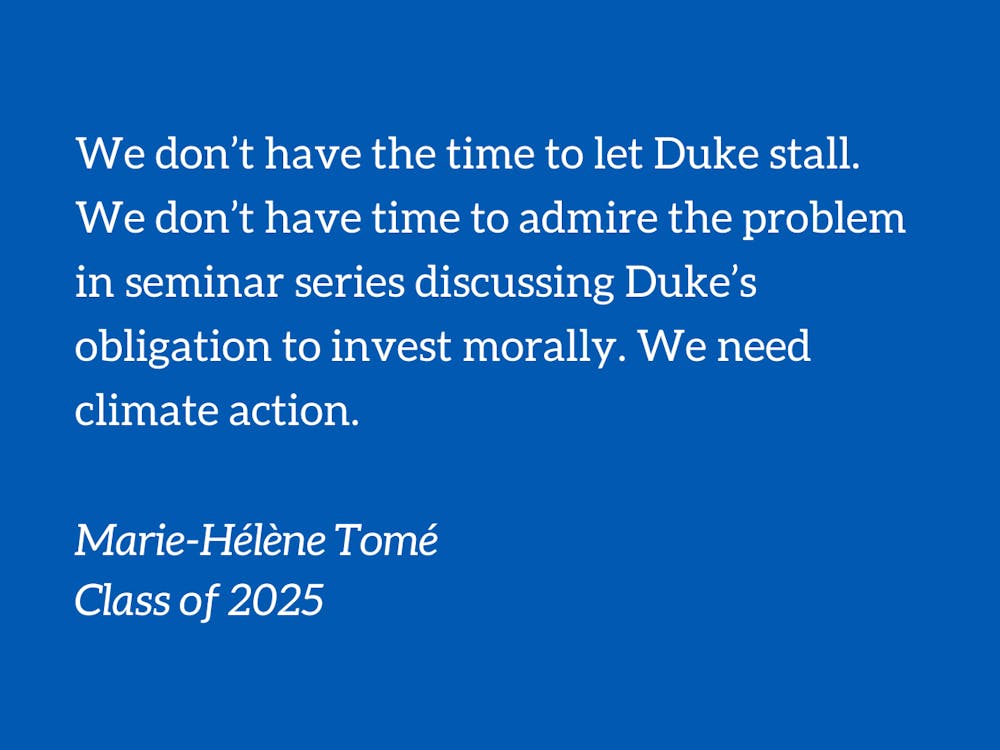It is July, a month once filled with those perfect, seemingly endless midsummer days. But today the sky is an orange haze. Within seconds of stepping outside, the smoky air burns your throat, and the fine particles clog your lungs. No, I am not pitching a post-apocalyptic Netflix show, although reading the headlines — wildfires in Hawaii, massive rains flooding the NYC transportation network leading to physical altercations for room on overcrowded subways, temperatures over 110 degrees Fahrenheit in Arizona — makes it sound like we are living in one. I am describing scenes from daily life in the Northeast this summer as smoke from the Canadian wildfires made the outside air unbreathable. This is our new reality, and it only gets worse from here. The good news is that we all have the power to change the script, so let’s pitch a new ending. I am claiming the right to clean air. I am claiming the right to government policy addressing climate change. I am claiming the right to a future, and you should too.
It may seem like the antagonists in this show are the likes of Chevron, BP, ExxonMobil and Shell — companies which are spending $200 million a year lobbying government to deprive us of these rights. And yes, these companies have a history of obfuscating their role in the climate crisis, accelerating climate change by increasing CO2 emissions and using the profits they earn at our collective expense to actively block viable policy solutions to the climate emergency and double down on their investment in fossil fuels. But Duke also plays a significant role. By selling its institutional clout to the fossil fuel industry in the form of investing in fossil fuels and accepting donations from and publishing research funded by fossil fuel companies and climate denial foundations, Duke is giving legitimacy to their false claims of equity and sustainability and growing their political and economic clout.
In 2022, Chevron and ExxonMobil were sponsors of Duke’s Energy Conference during Energy Week. ExxonMobil recently executed a $59.6 billion dollar acquisition that will more than double its current oil production operations in Texas. These companies are betting that fossil fuels are the future. By allowing them to be a part of our campus, we are providing them a with platform for sanitizing their image and spreading greenwashing disinformation. In failing to speak out, we are giving our tacit consent to growing their power. If we continue to remain silent, we are complicit. If we fail to take individual and collective action, we have no one to blame for the climate crisis except ourselves.
We don’t have the time to let Duke stall. We don’t have time to admire the problem in seminar series discussing Duke’s obligation to invest morally. We need climate action. And that begins with dissociation. Duke cannot make a climate commitment and at the same time fail to do its part to address the systemic issues blocking climate policy. Duke must hold these companies accountable for their role in accelerating climate change and strip them of institutional backing.
Dissociation is not a silver bullet. It’s a prerequisite to climate action. Other issues will arise because of making these changes. For instance, how should scientists at Duke University find alternative funding if they are no longer allowed to accept funding from fossil fuel corporations? But these challenges are not arguments for maintaining the status quo. Change is always difficult, yet it presents us an opportunity to develop innovative policy solutions to increase the sustainability of our campus and to make our university a place we are proud to call home. Climate change is a complicated issue, and there are no quick fixes. There is just a lot of hard work, and that’s where we come in.
Dissociation from fossil fuel companies may seem “granola” or like something you’d agree might be beneficial but wouldn’t actively fight for. Maybe you think it’s hopeless to strive for broad institutional change. The recent success of the student-led Sunrise Movement in getting New York University to divest, however, shows that grassroots student activism can lead to institutional change. This story can have a more hopeful ending than the headlines currently suggest. Young people around the world are coming together to save our planet. Here on campus, the Duke Climate Coalition is leading a Fossil Free Research Day of action on Oct. 27.
Unless they fundamentally change their business model, fossil fuel corporations have no place in a sustainable future, and they should have no place on our campus. Maybe you think your time is better invested doing something else. Let me ask you this: Is your future worth fighting for?
Marie-Hélène Tomé is a Trinity junior and a member of the Duke Climate Coalition.
Get The Chronicle straight to your inbox
Signup for our weekly newsletter. Cancel at any time.

